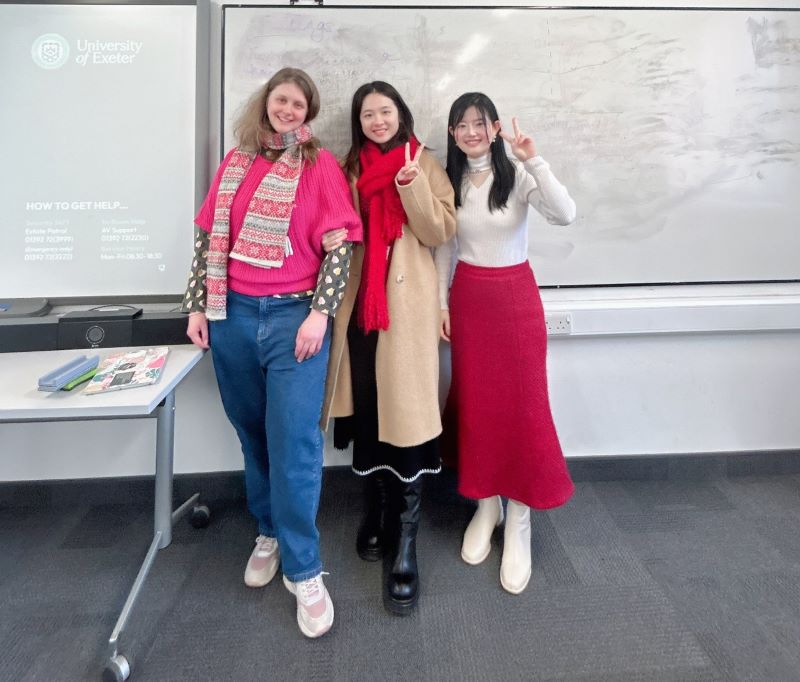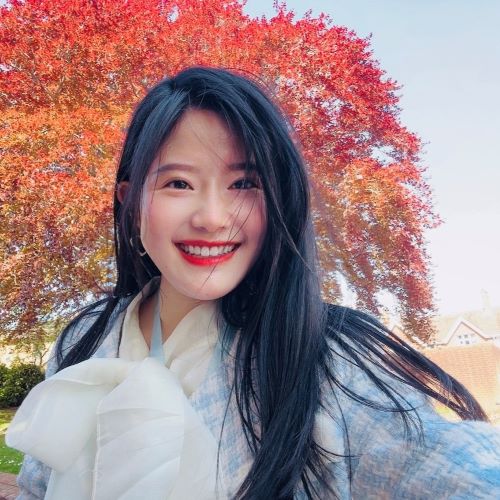Minlin (Minny) Zou is a Ph.D. candidate in Language Education and Applied Linguistics at the School of Education, University of Exeter, the United Kingdom. Her Ph.D. study was funded by the Chinese Scholarship Council and the University of Exeter Ph.D. scholarships. Her research interests include positive psychology in language teaching and learning, (AI-mediated) informal digital language learning, L2 writing, written feedback, evaluation and assessment in writing.
My team (Wenyu Li and Katy Humberstone) and I received a Researcher-led Initiative Award (RLI) 2025. The idea emerged from my personal experiences with academic publishing, peer review, and job hunting, as well as from insightful discussions and collaborative efforts within our team.
We ran four sessions in total:
Workshop 1: Introduction to academic impact
In this session, we defined what academic impact is, and why your research needs to be seen. We also looked at the importance of publishing, and how high-quality publications enhance their academic reputation and career development.
Workshop 2: Demystifying academic publication, peer review, and the job-hunting
This session covered practical strategies to support participants in navigating academic publishing, understanding peer review, and preparing for the job market. Additionally, two keynote speakers shared their career journeys from PhD onwards, offering candid insights and constructive, experience-based tips along the way.
Workshop 3: Thinking about broader social, environmental, and economic impact
In this session, we considered the broader impact that researchers’ research can have beyond academia. We were joined by academic members from the Impact Team at the University of Exeter, who shared their insights from their own academic research and practice.
Workshop 4: Mapping our impact
The final session took the form of a collaborative workshop, where we begin to plan the next steps to enhance the impact of our research. We also considered our research in light of the UNESCO Sustainable Development Goals (SDGs) and begin to consider how our research might align with these.
Organising the RLI workshop sessions
Organising the RLI workshop sessions was a challenging yet rewarding experience, as it involved coordinating a wide range of tasks. These included designing promotional materials for the sessions, circulating them to attract wider engagement, inviting and liaising with both internal and external speakers to arrange their keynote presentations, and sending out session details to registered participants and so on. I am deeply grateful to my team, who consistently took initiative and approached these responsibilities with great enthusiasm and spontaneity. I truly enjoy working with them, as they are always supportive of my ideas and committed to moving forward together. As the leader of the RLI programme, I made a conscious effort to consider my team members’ perspectives and well-being. I assigned tasks based on their interests and availability, which helped us maintain both efficiency and motivation. I am proud of the strong and collegial rapport we have built within the team.
Some key benefits I gained from the RLI programme
First, I had the opportunity to build strong and meaningful connections with both internal and external keynote speakers, laying the foundation for future collaboration. Second, I came to deeply appreciate the importance of working with an excellent and responsible team, whose enthusiasm for participating in the workshops and supporting our efforts was truly inspiring. Third, we received a great deal of positive and encouraging feedback from workshop participants, and it was rewarding to see what they had learned and taken away from the sessions.
In the end, it was a rewarding and enriching experience that contributed meaningfully to the academic research activities I have been engaging in, and it was truly gratifying to witness the harvest of PGRs and ECRs. I believe “Finding Your Footprint” serves as a beacon for those navigating academia – encouraging each researcher to embrace their unique academic journey, supporting the growth of research communities, and fostering a lasting academic impact.
Here are some excerpts from attendee feedback at our workshop series:
“This is really an amazing seminar, and I am impressed by both presentations. They give me lots of insight into career plans and publications. I am also impressed by George’s last slide which is a seed that will grow into a big tree.” (Xuan Zhao)
“That working in academia can be challenging and not give up – publication is the most important thing to get a job.” (Kirsty Cann)
“I learned that academic publishing requires thorough and meticulous review and strong communication skills to effectively engage with editors and understand their requirements, thereby enhancing the chances of publication.” (Meshal Alhumaid)
“Although the impact of a researcher on their own field is small, it is the small progress of countless people that drives the development of the field.” (Haiqi Zhou)


